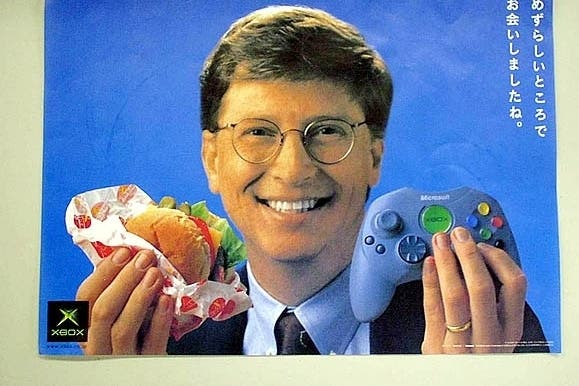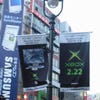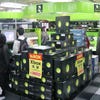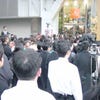Why Xbox failed in Japan
From the archive: the inside story on Microsoft's greatest ever challenge.
Every Sunday we haul an exciting article out of the Eurogamer archive so you can read it again or enjoy it for the first time if you missed it. Wesley's piece on Xbox's trials and tribulations in Japan was originally published on 14th December 2012.
Bill Gates was preparing to walk out on stage to deliver his much-anticipated keynote at the Tokyo Game Show on Friday 30th March 2001. The Makuhari Exhibition Hall was packed with a 4000-strong audience. Executives from all the major Japanese game publishers were there: Capcom, Square, Tecmo, Sega, Namco, the lot. Press had gathered from all over the world, and they were all there to see one thing: the Xbox.
Backstage, Gates turned to Kevin Bachus, at the time Xbox director of third party relations and the man charged with getting all those Japanese executives out there in the audience to make games for Microsoft's new console. “Here, hold this,” Gates said, pulling out his wallet. “I don't like having anything in my pocket when I'm talking.”
Suddenly, Bachus was holding the wallet of the richest man in the world. It felt thin, as if only a credit card and a driver's license were inside. “I was terrified to even open it,” he remembers over a decade later. “But of course that's all you need when you're a billionaire right?”
Gates' star turn at the Tokyo Game Show was supposed to show the Japanese game industry that Microsoft was serious about getting into the console business. Gates, one of the most famous people in the world, one of the most respected businessmen ever, had taken the time to make sure Japan felt important.
But all didn't go according to plan.
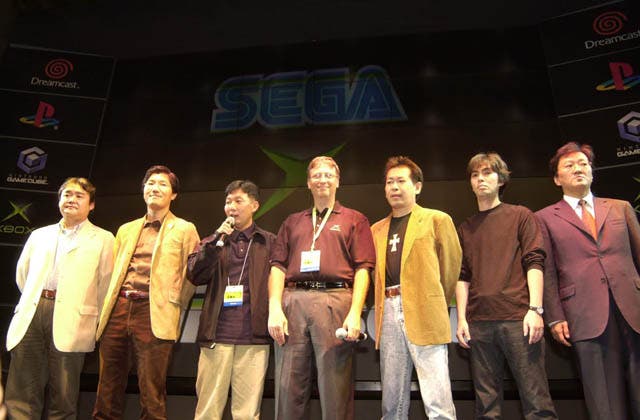
Gates spoke eloquently about the importance of the Japanese game industry, of his reverence of Isao Okawa, the former president of Sega who had died two weeks before the show after a battle with cancer. Okawa was a "great man who accomplished many things" Gates said. The Japanese, wearing headsets pumping out frantic translations, listened intently and respectfully, as the Japanese do. But when Gates started talking about the Xbox his keynote turned from insightful industry analysis into a sales pitch.
Gates announced Sega would design eleven games for the Xbox, including Panzer Dragoon, Jet Grind Radio Future, Sega GT 2 and Gun Valkyrie. He announced the Xbox controller S, a slightly smaller version of the reviled controller that would come with US and European launch units, with the buttons positioned to best accommodate styles of gameplay popular in Japan. And he announced Microsoft's Xbox Japan division, run by former Sony game development chief Toshiyuki Miyata, set up to make Japanese games for Xbox to appeal to Japanese gamers and to sign Japanese games made by Japanese publishers.
Miyata previewed Xbox games with videos and demos - Azurik: Rise of Perathia, Amped: Freestyle Snowboarding, NFL Fever 2002 and Halo, which would all launch in Japan. Konami's Air Force Delta 2 and Tecmo's recently confirmed Dead or Alive 3 were shown to highlight the support from Japanese publishers. Gates spoke of the console's 8GB hard drive, saying, "people still underestimate the difference it will make”.
"In the Japanese market feedback is naturally different from the United States," Gates said. How right he was.
You can't please everybody all of the time
Kevin Bachus, former director of third-party relations at Xbox
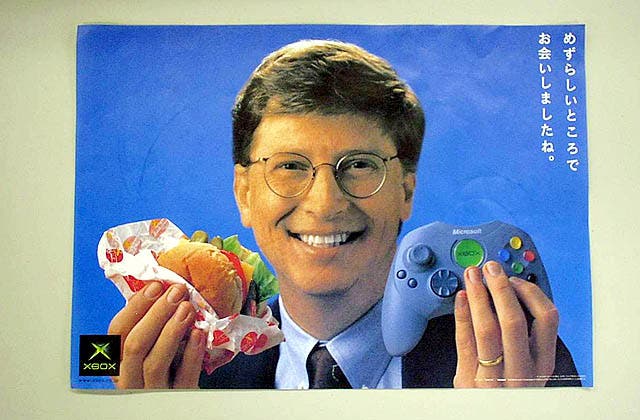
John Greiner is president of MonkeyPaw, a Californian company that localises obscure Japanese games for release in the west, primarily on the PlayStation Store. But before starting that company the 20-year game industry veteran was president of Hudson Entertainment. He's lived in Japan for years, working with the Japanese, understanding their culture.
We meet just outside one of the restaurants inside the expansive Makuhari Messe as Tokyo Game Show 2012 kicks into life. A high-pitched screech is on loop, part of the promotional video for the show that bursts out of hidden speakers. “This is my office,” he says as we set to down to chat.
“Put it this way, CESA, the organiser of these big events, they were pissed because of his speech and what he said,” Greiner remembers. “That turned a lot of developers and publishers away. They had a speech they vetted, and then when he gave the speech it wasn't the same speech. There were parts that were different. He was supposed to be talking about the industry but he was really just plugging the Xbox. Of course! That's America.
“That was a big deal, and people were pissed. The whole Xbox introduction into the Japanese market was not done correctly. They lost the faith of the people who they really needed.”
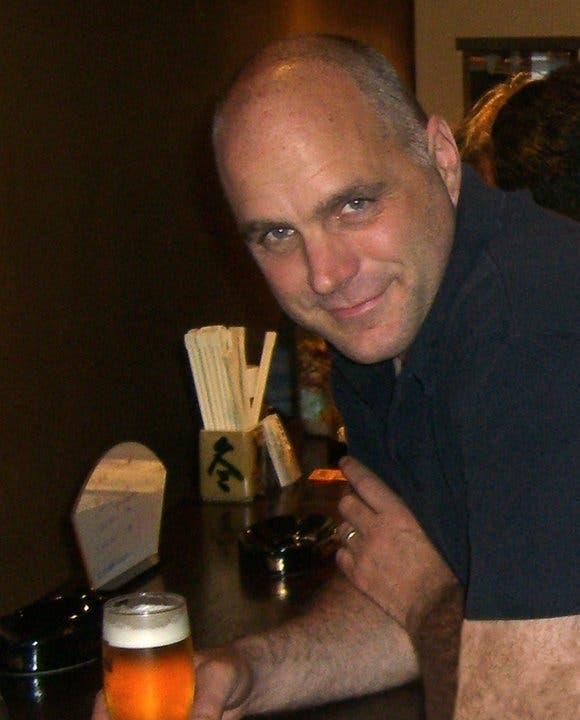
From Microsoft and Bill Gates' point of view, the keynote speech was appropriate. It was exactly the kind of thing they were used to doing at shows in the US: the Game Developers Conference, the Consumer Electronics Show, E3. But for the Japanese it came across as a PR-driven plug.
“I'm not saying they went out of bounds,” Greiner says. “But it was a bad start.”
Bachus seems taken aback when I suggest the speech didn't go down well. “People liked it,” he says. “It sounds a little arrogant, but from their perspective and from my perspective as a guy who had been in the game industry my whole career, I thought it was validating to have someone like Bill Gates go to the Tokyo Game Show and show that commitment. That was a really big deal and I really enjoyed that.
“The expectation was we were coming to ask the Japanese industry one last time to support us and to explain why and to give the same kind of thing you see Sony or Nintendo give at E3, which is, here it is and this is what we're doing.
“Because they didn't really do that at TGS at the time, there were questions like, 'well do this but could you please keep it relatively non-denominational and sort of give philosophy?' For whatever reason, that message wasn't communicated properly.
“Look, you know from dealing with the game industry, you put ten guys in a room and you get twelve opinions. I didn't have the impression after that presentation that people were upset. There were certainly, I'm sure, some people who felt we were being typical western barbarians coming in and unsubtly pimping our product out, but Bill thought that was what he was there for.
“The speech was absolutely appropriate to an E3, to an ECTS, to a GDC. But because there had been some expectations set and because we were being given this opportunity to give a keynote, I'm sure that may have rubbed some people the wrong way. But that had no impact on our relationships. In fact, we heard a lot more positive about the fact Bill came and spoke and spoke eloquently about the game industry and how important Japan was.
“You can't please everybody all of the time.”
Gears in motion
Microsoft's Xbox adventure in Japan began years before Bill Gates' 2001 keynote speech. When the Xbox was being created in Redmond, Bachus and Seamus Blackley, the two Xbox co-creators who spent the most time in Japan, always knew the market would be a challenge. At the turn of the century Japan dominated the console games industry with a whopping thirty per cent of the market. The Sega Dreamcast, which hadn't performed well, was made by a Japanese company. Sony's PlayStation 2, which had performed wonderfully, was made by a Japanese company. And the Nintendo GameCube, also made by a Japanese company, was fast approaching.
“We were basically going to play in Sony, Sega and Nintendo's home stadium,” Bachus says. “As a result, Seamus and I and other people from the team put a disproportionate amount of effort into trying to make Xbox attractive in Japan, but there were a bunch of things that were lined up against us.”
We were basically going to play in Sony, Sega and Nintendo's home stadium
Kevin Bachus
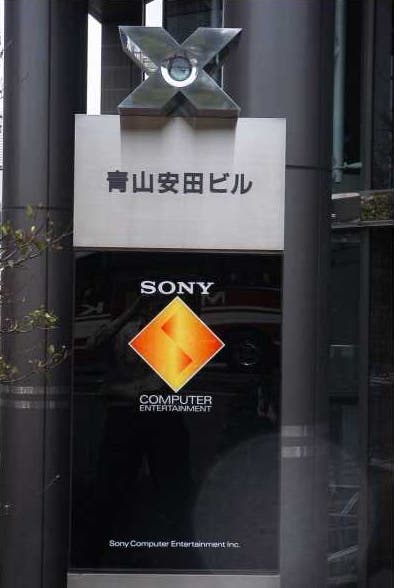
The Xbox was so named because of its ties to PC gaming - unsurprising, really, given the company behind it. It was built based on familiar PC gaming development processes and tools and technologies. It came with a hard drive, would facilitate patches and would connect to the internet. All wonderful, forward-thinking additions to the console landscape sure to please western developers.
Unfortunately in Japan there was no such thing as PC gaming. The likes of Konami, Namco and Capcom were console developers. On top of that, Microsoft faced a perception issue. Most Japanese publishers of the time thought the Xbox as a console for American games that most Japanese gamers wouldn't find interesting.
“So even before we lifted a finger there was a perception among game companies and consumers that this was a console made for other countries, and even though it might be available in Japan it really wasn't for them,” Bachus says.
But, in truth, Microsoft didn't help itself when it came to Japan. Some of the decisions it made while designing the Xbox made some of the Japanese games community scratch their heads.
The Xbox was a beast of a games console, heavy, bulky and devoid of subtlety. It was made out of inexpensive black plastic with a controller seemingly made for hands the size of those pointing finger gloves you see at baseball games. It was everything the Japanese thought an American-made games console would be.
“We thought it would be more like what PlayStation 3 looks like now, something sleek and sexy,” Bachus says. “For a number of reasons, mostly related to cost, but also partly related to thermodynamics of engineering the box - air flow and the size of components - we just weren't able to do that. The Japanese looked at that and it reinforced the notion this didn't have a Japanese aesthetic. This was a console that was for western gamers and was being made available in Japan.”
Microsoft's Xbox team received all sorts of feedback from Japan. Ed Fries, then vice president of Microsoft Game Studios and one of the co-creators of Xbox, remembers being confused by the advice he was given. An earlier PC game Microsoft had brought to Japan had a main character with only a few fingers, and Microsoft was told that was a taboo because it had a connection to the Yakuza cutting fingers off.
When it came to the Xbox, the befuddling feedback continued. “We were told we couldn't call it the Xbox because X is the letter of death,” Fries remembers. “We were told we couldn't make it black because black is the colour of death. I was like, isn't the PlayStation black? Rules that apply to you as an outsider don't necessarily apply to insider products.”
Fries was told he couldn't release Halo the way it was in Japan because Japanese players wouldn't be able to deal with the dual sticks. “So we ended up having to make a bunch of modifications for Japanese players and dumb the game down, make an easier version.”
Most of the Japanese backlash to the recently unveiled Xbox revolved around the controller. The “controller débâcle”, as Bachus remembers it now, was the result of two competing factions within the Xbox development team. Microsoft's chief technology officer J Allard and [Xbox software boss] Cam Ferroni wanted to build the ultimate game controller that had everything the team liked about its rivals: the expansion port from the Dreamcast, the two thumbsticks from the PlayStation DualShock and six buttons, which was great for playing fighting games on the Sega Mega Drive.
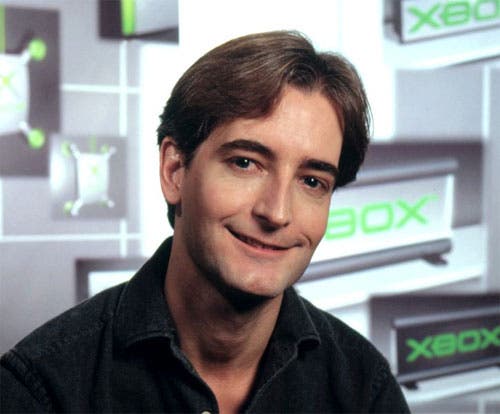
Microsoft's hardware technicians wrapped plastic around those features and came up with the original Xbox controller design, codenamed Duke. Testing showed it didn't cause much of, if any, muscle stress in the hand. Blackley and Bachus and celebrated programmer Mike Abrash thought it was enormous, and felt everyone else would too.
The Japanese “flipped out”, Bachus says. “They said, 'obviously this is going to fail. Nobody is going to buy this.' Then they started rethinking their commitments to the platform. They said, 'this combined with the enormous giant console says you really don't intend for this to be successful in Japan.'"
“We were told the controller had to have the weight of water,” Fries recalls. In a panic Blackley and Bachus triggered a crash program to develop what would become the Controller S. Its codename was Akebono, after the US-born sumo wrestler Akebono Tarō, the first non-Japanese born wrestler ever to reach yokozuna, the highest rank in sumo.
But there wasn't time for Microsoft to build enough Controller Ss. So the launch consoles in the west shipped with Duke and the after market controllers were Akebono. When the Xbox eventually launched in Japan in 2002, all the controllers were Akebono, but the damage had been done. “It caused everybody in Japan to say, 'do these guys know what they're doing? Are they going to be successful here?'” Bachus says. “That was rough.”
Doing business
Before launching the Xbox Microsoft met with publishers to try to secure third-party support for the console in the US, in the UK and in Japan. Meetings were arranged. Discussions were had. Microsoft talked the talk. Publishers signed up, or they didn't.
In Japan these meetings were fraught with complexity. So popular was the first PlayStation that Sony enjoyed a vice-like grip over the hearts and minds of Japanese publishers. They were afraid to alienate Sony by supporting Microsoft. In some cases, they were even afraid to be seen to support Microsoft.
They were very American, and I'm an American so I can say that
MonkeyPaw president John Greiner
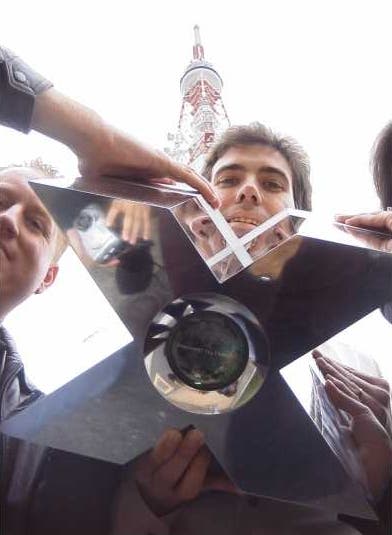
“I remember going to a Sony party at E3,” Bachus says. “They had every one of the major Japanese game publishers who we'd spent a lot of time with in Japan. I ran into one of these guys, who was standing with Ken Kutaragi. At first he was like, 'hey!' and his face lit up. And then he realised he was standing next to Kutaragi. 'Oh, oh, I'm sorry, do I know you?' He pretended he didn't because he didn't want to alienate Sony.”
Microsoft had heard that Sony struck different loyalty rates with different publishers. Microsoft wanted to create a level playing field where all publishers paid the same royalty fee, but this rubbed some Japanese the wrong way. “They thought we'd buy their loyalty,” Bachus says.
With Xbox Microsoft was starting from scratch in Japan. It had a relationship with Sega because Microsoft had created a version of Windows CE for Dreamcast and some of the Sega console's development tools, and it had a relationship with Konami (through the PC port of Metal Gear Solid) and Tecmo (mainly because Blackley and Itagaki got on like a house on fire) but these relationships were small and distant.
Microsoft's strategy was to talk tech. Bachus and Blackley visited Japan on a regular basis to extol the virtues of the power of the Xbox. They tried to do it the Japanese way, socialising over dinner and drinking lots and lots of wine. The idea was to cultivate relationships that would benefit Xbox in the long term.
At E3 2000 the Japanese game industry flew en masse to Los Angeles. Microsoft had its chance. The Xbox team got wind of Club Cha Cha, a Japanese hostess bar in Torrance, California, near Los Angeles International Airport, that Japan Airlines would recommend to their first-class customers. It was for a certain sort.
Bachus block booked the entire place, and one by one they came - the first time all the Japanese game developers had been together under a Microsoft roof. They had a great time, and Microsoft was more than happy to bankroll the fun. At the end of the night, which was actually the morning, Bachus looked at the itemised bill: the Japanese had drunk through $30,000 of wine. “Japanese game developers are particularly appreciative of that,” he says with a chuckle. “The party went on for a very long time.”
“They were very friendly to us. Very receptive. On a personal level I really enjoyed them and had a good time with them, but from a commercial standpoint they were trying to figure out what sort of thing they could do to justify an investment in developing games for Xbox.
“A lot of the classic console games have come from Japanese game publishers obviously. But that represents a very small percentage of the games they do. If you look at Namco, Ridge Racer or Tekken, very successful games in and out of Japan. But compared to the number of titles they do, most of which never see the light of day in the west, it's a big investment to say, okay, we're going to staff up an engineering effort to do a game specifically for this one title we think is probably going to be successful in two thirds of the world, and not the world that reflects well on us and we take pride in.”
Meetings meetings and more meetings
The cultural divide between east and west that caused Microsoft so many problems manifested itself in meetings. Sometimes, these meetings went well. Microsoft had a relatively easy time securing Tecmo's Dead or Alive 3 as an Xbox exclusive launch title because of Blackley's close relationship with series creator Tomonobu Itagaki, Later, in 2004, Itagaki's Ninja Gaiden released exclusively on Xbox.
“I remember meeting with them and they were saying, 'well, I guess you're here to ask for Dead of Alive, because everybody comes and wants to know what it would take for us to move Dead or Alive over.'” Bachus says. “I said, 'actually, no. I've read you're thinking about doing Ninja Gaiden, which was one of the first games I ever bought, and I'd love to see that on Xbox and I'd love to build a franchise around the association between Ninja Gaiden and Xbox.
“My candour and the fact we weren't just looking to go after the crown jewels right away, that we were looking to build a relationship with them, surprised them in a positive way. They seemed to embrace a relationship with Microsoft in a more receptive way than some of the others who were looking at it from more of a commercial standpoint.”
Doing business in Japan is not the same as doing business in the US, and the Xbox team learnt the hard way. In the US businessmen meet, discuss a contract, terms, sign and then get to work. In Japan business is done based on the strength of a relationship, cultivated in the many restaurants and karaoke bars that litter Tokyo and other business centres. The Japanese want to get a sense of who they're dealing with before they sign on the bottom line.
“When I first took over the games group back in '95, we had a game in development with Namco called Return of Arcade,” Fries recalls. “It was the second Arcade series we had done with them, porting their arcade classics to the PC. I kept talking to my guys on the team about where the contract was. The contract wasn't done, but the game was getting done. Finally the game was done. It was in manufacturing and we still didn't have a contract. That's a problem. I had to fly to Japan. I had dinner with the senior execs of the Namco team. Then I flew home the next day. We never talked about the contract, but then the contact was signed and everything was good.
“That's when I first started to learn about business in Japan.”
“They were very American, and I'm an American so I can say that,” Greiner says. “And Xbox is a cocky company. I respect them because I love what they've done, but sometimes that doesn't rub Japanese well when you're in their culture trying to break into their market. You have to act like them. You can't act like the Wild Wild West. This is the ancient Orient, not the Wild West, and there are lots of rules and ways to do things that you simply don't cross lines.”
Sometimes meetings didn't work out quite as intended. “I remember one rough meeting where we met with Naka-san [Yuji, creator of Sonic the Hedgehog],” the softly spoken Fries says. “Maybe he and I had an argument. He's known for that. I had to get mad at one point, which is unusual for me. It really is. But he didn't hit me or anything, like some of the stories I've heard.”
But for all the good work Microsoft did to secure Japanese-made games for the Xbox, it is the ones that got away that linger longest in the memory.
The ones that got away
Christmas 2000, a year from launch. Most western publishers had jumped on board and were developing for Xbox, but Microsoft was still enduring friction in Japan. Executives struggled to work out what was going on. Was the team in Japan working hard enough? Was it made up of the right people? Was the challenge simply too great? It was decided - a quick trip to Japan would sort everything out.
Microsoft had heard on the grapevine that Shinji Mikami, famed creator of Resident Evil, had grown tired and frustrated with developing for the PlayStation 2, which hadn't even been out a year. There were whispers that Mikami was thinking about moving Resident Evil away from PlayStation. He was looking at Microsoft, preparing to launch the Xbox, and Nintendo, preparing to launch the GameCube. Microsoft saw its chance, and set up a meeting.
Bachus remembers Mikami looking every bit the Japanese rockstar, all mirrored sunglasses and leather jackets. An entourage of hangers on followed him into the Microsoft Japan meeting room.
What is your philosophy?
Resident Evil creator Shinji Mikami asks Microsoft during a Christmas 2000 meeting
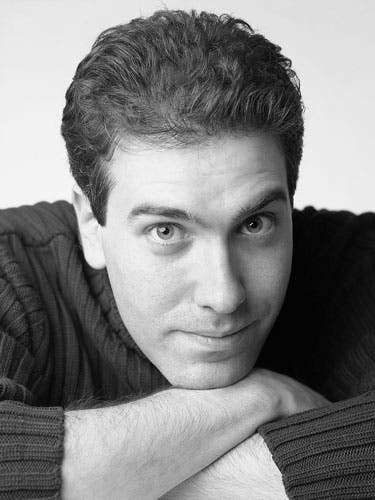
The meeting was conducted by a member of Microsoft Japan's staff who could speak both English and Japanese. Things began cordially, but soon started to deteriorate. Bachus shifted uneasily in his seat. He could tell from Mikami's body language and tone that he wasn't happy with the answers he was getting. The entire meeting was conducted in Japanese. Notes were passed to Bachus explaining what was going on but all he could do was watch in horror, helpless, as it fell apart. The meeting ended abruptly. Mikami stood, bowed, and left.
Bachus was furious. The translator explained: Mikami had confirmed what Microsoft had heard, that he was frustrated developing for PlayStation 2, which was tough to work with. But his team's bonuses were tied to game sales. He needed a reason, a way to explain the shift away from the wildly successful PlayStation 2, the dominant platform of the time, to the Xbox, which had yet to launch, and which in most Japanese eyes was doomed to failure. “What do you guys have to offer?” he asked, bluntly.
Eventually an exasperated Mikami boiled it down: 'what is your philosophy? Sony says games are entertainment, something larger, fuelled by the Emotion Engine. Nintendo says games are toys, created by the legendary Shigeru Miyamoto, perhaps the greatest game developer of all time. What do you feel?' Microsoft had no answer.
“I almost jumped out the window because we had said repeatedly over and over and over that we aspire to enable games that could be considered to be art, much like film,” Bachus says, “that because of the maturity of the development tools and the APIs and the power of the technology, game developers on Xbox would be able to concentrate on the finesse features that elevated games to being something more than they were otherwise.
“So the guy who reported to me said, 'oh that's so great! I wish that I had known that.' But unfortunately it was too late.”
Bachus flagged down Pat Ohura, the head of Xbox Japan at the time, and told him to jump on the next train to Osaka to salvage the deal. But he was too late. Mikami had already met with Nintendo and pledged Resident Evil to its consoles. “That's why Resident Evil 4 was a Nintendo exclusive and it took a while for it to come to Xbox. That was very frustrating.”
Ed Fries has his own tales of Xbox exclusives that got away. One involved Square - the only major publisher not to support the Xbox at launch - and massively multiplayer online game Final Fantasy 11.
Square wanted to bring the game to the Xbox, but Microsoft's Xbox Live team in Redmond resisted, pushing back against the idea of having a more open platform. Square wanted to create a single world where PC players and Xbox players could interact together - a difficult technical challenge to resolve.
It was like watching a train wreck. It was like watching all this work I had done just fall apart
Former Microsoft Game Studios vice president Ed Fries
“They didn't want to be open to this Square thing,” Fries says. “I was just trying to get Square to support us at all. This was something they were willing to do on Xbox. They weren't willing to bring their core Final Fantasy over because of their tight relationship with Sony, but if we could get FF11 then we'd have a Final Fantasy on our platform. That sounds great, right?”
Many meetings and dinners later, a meeting in the US at E3 2003 was arranged. Microsoft and Square executives sat down to discuss Final Fantasy 11. From the off it was a disaster. “I had gone through a lot of work to set up this meeting,” Fries says. “I just sat there and watched it fall apart. There was a whole bunch of American attitude to the meeting, and the Japanese did not appreciate it.
“It was like watching a train wreck. It was like watching all this work I had done just fall apart.”
Bachus puts Square's lack of support for the Xbox down to a “self-reflecting problem”. “Square decided that with Final Fantasy it had been a good strategy to focus exclusively on one platform. You didn't see Final Fantasy on Nintendo, Sega and Sony. They decided it was going to be Nintendo and then they decided it was going to be Sony.
"They were intrigued by the capabilities of what we were doing with our platform. There were a lot of things we were looking to do together from a technological standpoint, but ultimately they believed even more significantly than the others, that Xbox was unlikely to be the dominant platform in Japan in the PlayStation 2, Xbox and GameCube era, and that because they were going to once again focus on one platform exclusively, it made more sense for them to be on PlayStation than it did to be on Xbox.
“Final Fantasy has historically been predominantly a Japan-centric title. It does very well outside Japan, but not nearly as well as it does inside Japan. At the end of the day they felt that the installed base of PlayStation in Japan and PlayStation 2 lent itself more for that. And at the time, once you go past Final Fantasy there's not a whole lot in the Square library to say, well, we have Square, we just don't have Final Fantasy.”
The launch and scratched discs
Ed Fries remembers the launch of the Xbox well. It was early morning on 22nd February 2002. He and the team had stayed up all night, as they often did in Japan, and headed straight to the days' festivities in Shibuya. Bill Gates had made the trip and was on hand to give away the first Xbox sold in Japan, but he reserved a special mention for Fries, who was expecting the birth of his first child in little over a month's time.
“He signed an Xbox for me. He wrote, 'Ed Junior's first toy. Bill Gates.' I've got that here. It's a prize possession. That first Xbox was a smokey, clear colour. It was a neat box. It was a neat time in my life. We had just launched the Xbox and then I was having my first kid.”
But things soon went south. Japanese gamers began complaining that the Xbox was scratching game discs. It wasn't a problem local to Japan, but there it caused an uproar that blind-sided Fries and the Xbox team back in Redmond. The re-sell market in Japan is particularly important, and if there is a scratch on a disc it lowers the value of the game. “It's not really an issue in the US,” Fries says. “Maybe western companies sell to a different standard than Japanese companies. As it spun in the carrier it could leave a rotary scratch on the outside of the disc, which doesn't interfere with gameplay at all, but interfered with the re-sell value in Japan.”
It was a neat time in my life. We had just launched the Xbox and then I was having my first kid
Ed Fries
Then, amid poor sales, more bad news. “When things started to go against Microsoft they decided they needed to do some layoffs,” Bachus says, “which was very, very not Japanese. They handled it in a very American way and it made national headlines, so it again reinforced the notion that this wasn't a console for Japanese gamers. This was a console that was for western gamers and was being made available in Japan.”
As news of the layoffs spread former employees at Microsoft's Xbox operation spoke out about apparent poor treatment. "The Xbox sales situation has become severe," Microsoft's director of business development, Par Singh, reportedly said during a company meeting reported by Nikkei Keizai Shimbun. "Regrettably, an early retirement program has been instituted. Please return to your desks and check your email for a letter from the Personnel Department. If you receive one, follow the instructions immediately." This was the way of the west, not the way of Japan.
In September 2003 Microsoft announced that Yoshihiro Maruyama, previously an executive at Square, had replaced Singh as the new general manager of the Xbox Division at Microsoft Japan, reporting directly to Peter Moore, then corporate vice president for Worldwide Retail Sales and Marketing in Japan and Europe for the Home and Entertainment Division. Microsoft said this “key” management addition would reinforce Xbox's commitment to Japan.
The cultural divide
Many foreign companies have struggled to find success in Japan. Microsoft is not the first, and it won't be the last. But it's clear that as the gargantuan American company was finding its feet in the land of the rising sun, it didn't play a smart game.
“It's a very unique iconic market,” John Greiner says. “You've got to know what moves people and what doesn't. They have to do it their way. I know some of the Microsoft Japan guys and they get that. They understand. But it's hard because a lot of decisions are made out of America, even for them. That's hard for the Japanese to work with."
Talk to the Japanese about Xbox and you get an odd, almost apathetic response. They know they're not that bothered, but they're not that sure why.
The Team Ninja of 2012 is very different to the Team Ninja of 2000. Itagaki is gone, hoping to make a success of Devil's Third. In his place stands Yosuke Hayashi, lead developer of Dead or Alive 5 and Ninja Gaiden 3 - both multiplatform games.
The Tecmo Koei booth is one of the larger at Tokyo Game Show 2012. There Dynasty Warriors and all its spin-offs attract attention from the locals. The noise is deafening, and Hayashi's poor translator has to shout to be heard.
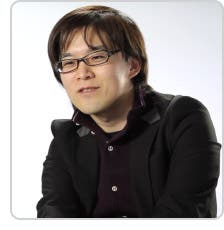
I ask the Microsoft in Japan question and he smirks before it's even been translated. “Sony and Nintendo were born in Japan,” he replies. “They're Japanese companies. That's where they come from. Microsoft is an American company. That's where it has come from.
“Say you go to Germany, you see a lot of people driving Mercedes Bens, BMW. You go to America, you see a lot of people driving American cars. They know American cars. In Japan people are driving Japanese cars.
“There's just something about the hardware that gets made in each region that works for that particular region, and the people there just know it and they get it. It's a natural evolution of being created there. That's one of the things which might have hampered Microsoft or made it one of the challenges to reach the people over here.
“It's just not from here. It just doesn't feel like it came from here.
“If you got to Europe you see more of a balance between Nintendo and Sony and Microsoft in their platforms. Maybe that's because none of them were made from Europe. So they're all foreign.
“It's not that there's anything bad with the 360. I love 360 games. There are a lot of 360 games I want to play. But in general it has a different feel and it just hasn't resonated like a Sony or Nintendo console.”
“It's just not from here,” he says.
“Of all the countries in the world, the more we understood Japan the more we understood it was going to be difficult,” Ed Fries says with a sigh. “About Japan culturally, about their long history in the video game business. There's a cultural conformity that happens in Japan. All those things conspired to make it hard for an American product to come in and compete head to head with entrenched Japanese competitors.
“The more I got involved with it and learnt about it, the less surprised I was about how we were doing. When we were starting to work on 360, I was in the camp that we should de-emphasise Japan, that we should just accept it will never be a market where we'll do particularly well. Although we should pay some amount of attention to Japan, it shouldn't be a giant battle for us. There were other people who felt differently on 360, for sure.
“The people like me who spent more time in Japan had a more realistic expectation of what our potential was there and what the future potential was, than some of the people who were mostly back at Redmond and were divorced from it. For them, Japan was thirty per cent of the market. We can't just give away thirty per cent of the market. So we need to go and win there.”
The Last Hope
Whether through recklessness or bravery, Microsoft has thrown money at the Japan problem. Microsoft's media briefing at Tokyo Game Show 2008 opened with a trailer for The Last Remnant, a role-playing game made by Square Enix in Tokyo for release exclusively for Xbox 360 that November.
On stage then corporate vice president John Schappert told the Japanese game community how they could appeal to the global market with Xbox games. “Xbox 360 has emerged as the console for RPGs,” he said. “We're seeing compelling titles like Tales of Vesperia, Infinite Undiscovery, Fable 2, Fallout 3 and The Last Remnant. And that's just for 2008.”
Also shown was Xbox 360 exclusive Star Ocean: The Last Hope, the Tri-Ace made, Square Enix-published JRPG, and the first in the series this generation, and exclusive to Xbox 360 - an eye-catching coup. Resident Evil 5. N32, Ninety Nine Nights 2, from Q Entertainment - an Xbox 360 exclusive. Tekken 6, out on Xbox 360 in autumn 2009. XBLA game Space Invaders Extreme from Taito. Arkanoid Live. SNK Playmore's Metal Slug 7 for XBLA. King of Fighters '98, out in the spring. R-Type Dimensions from Konami.
Fast-forward two years to Tokyo Game Show 2010. Microsoft's media briefing was held on 16th September. Takashi Sensui, general manager of Microsoft Japan, walked out on stage to announce the 10 Japan-made games he believed would reverse Xbox's dwindling fortunes in the country.
Kojima Productions producer Shigenobu Matsuyama gave a demo of Metal Gear Solid: Rising, the game that would eventually be shifted to Platinum Games and renamed Metal Gear Rising: Revengeance. Where is that now? It launches next year. In Japan, the Xbox 360 version has been cancelled.
“We can only say there are several reasons for that, and we can't get into specifics,” is all Kojima Productions producer Yuji Korekado would tell me over Skype. “In Japan we have users who play a lot of PS3 games and users who play Xbox 360 games.”
Then Phil Spencer, corporate vice president of Microsoft Game Studios, announces five brand new partnerships for Japan-made Xbox 360 exclusives: Spike - Fire Pro-Wrestling, coming 2011. Treasure's 2011 XBLA game Radiant Silvergun. Kinect exclusive Haunt, from NanaOn-Sha. Grounding Inc's Project Draco, now called Crimson Dragon, supposedly the spiritual successor to Panzer Dragoon. Suda 51, CEO of Grasshopper Manufacture, with codename D, coming 2011 for Kinect.
Then, more Xbox 360 exclusives, this time with a focus on Kinect: Dr Kawashima's Body and Brain Exercises, a launch title for Kinect in Japan from Namco Bandai. Child of Eden, a Kinect exclusive from Q Entertainment, SEGA's Rise of Nightmares for Kinect and Capcom's Steel Battalion, a Kinect-exclusive from Dark Souls maker From Software.
How did these games do? Each and every one failed to make a dent in the sales struggle Xbox 360 endures in Japan. One still hasn't come out: Crimson Dragon, from Grounding Inc. The Japanese developer failed to respond to Eurogamer's enquiries. Microsoft provided the following statement:
“Crimson Dragon on XBLA was initially slated for a June 13 2012 release in Japan, however the release has been delayed. We don't have a release date to share at this time, but we're excited about Crimson Dragon's progress, and we are continuing to work on it with the teams at Grounding and LandHo!”
And what of the Kinect exclusives? Like most games for the motion sensing camera, they failed to set tills alight in Japan and the rest of the world. It's no surprise: as all Japanese publishers will tell you when the tape recorder isn't running, Kinect was never going to gain traction in Japan, where living space is at a premium and homes are smaller, on average, than they are in the west. Here we laugh about how much space you need to get Kinect to run properly. In Japan they don't even bother.
Now and then
Microsoft's decision to skip Tokyo Game Show this year was deemed a sign of two things: one, of TGS' reduced importance, and two, that Microsoft simply didn't have anything of importance to reveal, with the next-generation looming on the horizon. But it was also a sign of the diminishing importance of Japan to Microsoft and Xbox.
24 Xbox 360 titles were shown. 148 role-playing games were there. 21 games were described as shooting. Last year there were 37 Xbox titles at TGS. The year before that 25. In 2009, 40. In 2008 62.
Has Microsoft given up on Japan? In 2010 senior Xbox executive Chris Lewis insisted Microsoft would not pull out of Japan, but did admit to it being “a challenging market”. “We are up against very strong competition there,” he told Eurogamer. “All our competition is strong. We're very respectful of what Sony and Nintendo do and where they've come from and what they bring. Nintendo, particularly with the Wii, has opened up a market opportunity there. We've leapfrogged that handheld technology with Kinect...”
We are up against very strong competition there
Xbox EMEA boss Chris Lewis
Microsoft declined to put forward a spokesperson for an interview about Xbox in Japan for this report but did provide the following statement:
“As we move into the holidays, there is a focus on the worldwide market (for example the Black Friday sales figures that were released) rather than performance by territory.”
The future
The next Xbox looks set for launch in time for Christmas 2013. Will Microsoft once again invest in Japan exclusives that fail to make a mark? Will it, once again, throw money at the Japan problem?
“I would first lower expectations,” John Greiner advises. “What's a reasonable number? How many units do you think you can sell? It's possible for them to be a challenger, but they're still an American company and still operating from an American mindset.
“The Japanese they have here are very good and I appreciate what they're doing, but it's hard to dislocate the cultural aspects of Microsoft from even their Japanese divisions. So they're still very much Microsoft. It's going to be really hard for them.”
“If I were them I wouldn't give up on Japan,” Fries adds. “Sony's in a much weaker position than they used to be. So we'll see what that means for what they bring out in this next generation and how successful it'll be. Nintendo has moved into a very low-end hardware place. There's room for it to be the biggest, most powerful machine. With the Japanese game market not as strong, maybe Japanese gamers are more open to western content.
“I guess my point of view is, I would just be what Xbox is. It's always done well when it's focused on what it does well instead of trying to be what it's not. If it's the best machine to play shooters on and shooters are the most popular category, then I would do that. I'd love to have Square supporting the machine and bringing Final Fantasy to it. I wouldn't be closed to that. I just wouldn't spend a hundred million dollars to make it happen.
We should be what we are and be our culture, and to whatever extent they're willing to accept that, that's great
Ed Fries
“I would take a realistic approach to it. Think about anime culture in the US. That's pure Japanese culture influencing the culture in America. And likewise our culture can influence their culture. And our products can influence them. We should be what we are. That doesn't mean we shouldn't work with Japanese developers and develop Japanese content. But we should be what we are and be our culture, and to whatever extent they're willing to accept that, that's great. That's my attitude.”
Speaking to those who struggled to make Xbox a success in Japan, there is sadness and regret, but on the whole most are proud that they gave it their best shot. Yes, the goal was to win in Japan, outselling the PlayStation 2 and the GameCube, then the PlayStation 3 and the Wii. It hasn't done that. It hasn't even come close, but that doesn't mean there haven't been successes along the way.
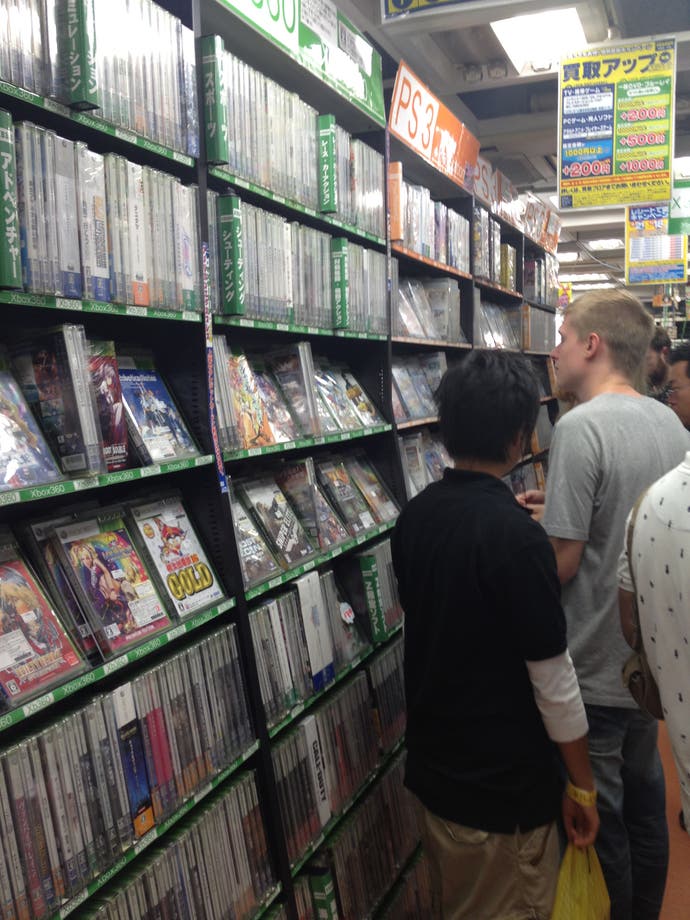
“For a long time when I was at Microsoft and was working on DirectX, I would go to Japan,” Bachus says, thinking of his proudest achievement there. “It was a challenge because there weren't many PC game developers. I was trying to figure out, 'well, how can we get more PC development in Japan?' I would always go to Akihabara and I would walk through these shops and these big monuments to gaming. One floor would be the PlayStation floor. One floor would be the Nintendo floor. I would walk around it.
“I remember going to the launch of Xbox in Japan February of 2002 and everywhere I go I see Xbox logos, I see Xbox pictures on the subway, I see Xbox on the buildings. I go to Akihabara, and these places I had walked a hundred times before now all of a sudden have Xbox displays and big throngs turning out to check it out and find out what's going on with it.
“I can't express to you what it's like to have something you work on go into... the closest would be if you were an artist and you'd always gone through the National Gallery and then suddenly one of your paintings was hanging there. That was great. That was a real high point for me.”
In the end, Bachus and Fries remember their time in Japan fondly. “There are a lot of things that went well,” Bachus says. “It was always going to be a herculean uphill battle. So in that regard I don't think many people were surprised it struggled. I was almost as surprised by how much we did accomplish in Japan and how much we accomplished with Japanese companies. I remember it being very challenging and being disappointed we didn't do better, but not feeling this thing was just a sinking ship.”
“I love Japan,” Fries declares. “I love going there. I think it's such a playful culture. It's one of the only places in the world where you'll have a serious business meeting and people will have a little Hello Kitty hanging off their cellphone. You'll see people playing games in the subway. It's a culture that doesn't take itself too seriously. It's a great culture for gaming.”
Will it ever be a great culture for Xbox? As Microsoft embarks on its next assault on gaming with a new console, we're about to find out.
